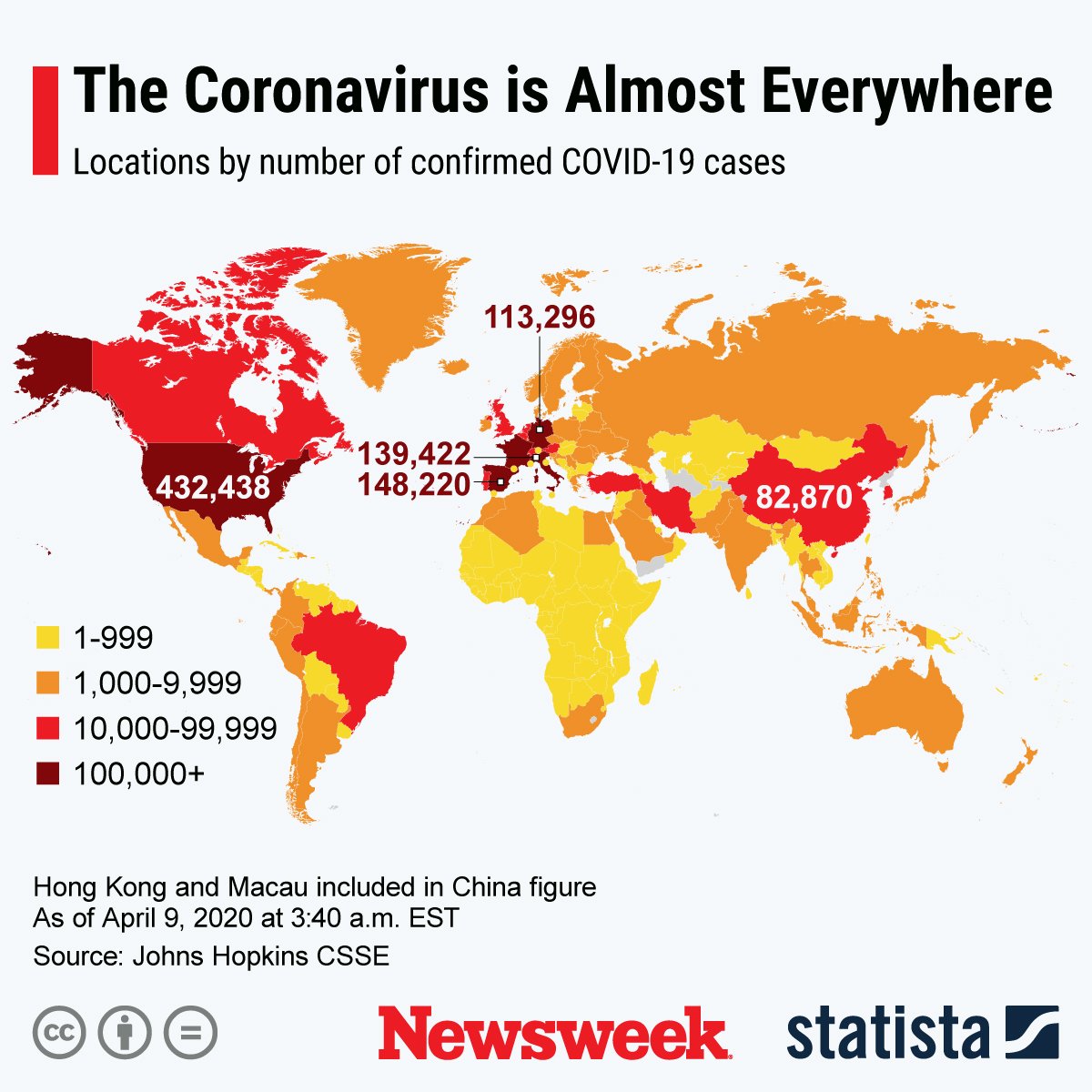Every individual whose death can be attributed to coronavirus in the city of St. Louis, Missouri was African American, according to the director of the City of St. Louis Department of Health, Dr. Fredrick Echols.
Echols addressed the rumor that African Americans are more resistant to contracting the virus in an article published Wednesday by The St. Louis American.
"In fact," Echols wrote, "as of April 8, all 12 COVID-19 deaths in the City of St. Louis were African Americans."
Recent data indicated 514 positive cases of coronavirus in the city of St. Louis while St. Louis County reported 1,337 positive cases, the highest number of coronavirus cases in the state of Missouri.
"We are learning more about the coronavirus every day, but let me tell you this in no uncertain terms: It doesn't care if you are black, brown, white, red, yellow or some other shade," Echols wrote. "The idea that African Americans are somehow resistant to it is both untrue and dangerous to the health of our community."

Social media may have been the genesis of the theory that African Americans may be more resistant, if not immune, to coronavirus because of their higher levels of melanin. Science does not support this claim.
"Ethnicity and genetics have no influence on recovery from the virus," Professor Amadou Alpha Sall of the Institut Pasteur said in February, "and black people don't have more antibodies than white people."
Pre-existing conditions such as diabetes and heart conditions "disproportionately affect the black community," Echols said, which could place African Americans at greater risk for contracting the virus.
"We are very sensitive to this situation," said Missouri Department of Health and Senior Services Communications Director Lisa Cox in a statement sent to Newsweek on Thursday. "This week, we have begun reporting out race-related case and death information, and we have reinforced the fact that reporting race to us is mandated by law."
"We need this information because it is vital as we develop strategies to provide assistance to where it is most needed by increasing testing accessibility to identify cases and predict areas where we need to ramp up social distancing messaging," the statement continued. "It also helps us to ensure we are seeking early intervention where it is needed to help decrease morbidity and mortality due to COVID-19."
Data released by the Centers for Disease Control Wednesday showed that during March, 33 percent of individuals requiring hospitalization for coronavirus were black, even though only 13 percent of the population of the U.S. is comprised of African Americans.
"Diseases like diabetes, hypertension, obesity and asthma are disproportionately afflicting the minority populations, particularly the African Americans," said infectious diseases expert Dr. Anthony Fauci during Tuesday's White House coronavirus task force briefing.
"Unfortunately, when you look at the predisposing conditions that lead to a bad outcome with coronavirus, the things that get people into ICUs that require intubation and often lead to death, they are just those very comorbidities that are unfortunately disproportionately prevalent in the African American community," Fauci continued. "So we're very concerned about that, it's very sad. There's nothing we can do about it right now except try and give them the best possible care."
Governor Gretchen Whitmer of Michigan announced the formation of the Michigan Coronavirus Task Force on Racial Disparities in an effort to help the state combat the problem.
"As of today, over 40 percent of COVID-19 deaths in Michigan are African Americans, but only 14 percent of Michiganders are African Americans," read a press release sent to Newsweek on Thursday.
"This virus is holding a mirror up to our society and reminding us of the deep inequities in this country," said Whitmer. "From basic lack of access to health care, transportation, and protections in the workplace, these inequities hit people of color and vulnerable communities the hardest."
Michigan has reported 21,504 positive cases of coronavirus, currently making it the state with the third-highest number of confirmed cases of the virus.
The graphic below, provided by Statista, illustrates the distribution of COVID-19 cases around the world as of April 9 at 6 a.m.

Centers for Disease Control and Prevention Advice on Using Face Coverings to Slow Spread of COVID-19
- CDC recommends wearing a cloth face covering in public where social distancing measures are difficult to maintain.
- A simple cloth face covering can help slow the spread of the virus by those infected and by those who do not exhibit symptoms.
- Cloth face coverings can be fashioned from household items. Guides are offered by the CDC.
- Cloth face coverings should be washed regularly. A washing machine will suffice.
- Practice safe removal of face coverings by not touching eyes, nose, and mouth, and wash hands immediately after removing the covering.
World Health Organization advice for avoiding spread of coronavirus disease (COVID-19)
Hygiene advice
- Clean hands frequently with soap and water, or alcohol-based hand rub.
- Wash hands after coughing or sneezing; when caring for the sick; before, during and after food preparation; before eating; after using the toilet; when hands are visibly dirty; and after handling animals or waste.
- Maintain at least 1 meter (3 feet) distance from anyone who is coughing or sneezing.
- Avoid touching your hands, nose and mouth. Do not spit in public.
- Cover your mouth and nose with a tissue or bent elbow when coughing or sneezing. Discard the tissue immediately and clean your hands.
Medical advice
- Avoid close contact with others if you have any symptoms.
- Stay at home if you feel unwell, even with mild symptoms such as headache and runny nose, to avoid potential spread of the disease to medical facilities and other people.
- If you develop serious symptoms (fever, cough, difficulty breathing) seek medical care early and contact local health authorities in advance.
- Note any recent contact with others and travel details to provide to authorities who can trace and prevent spread of the disease.
- Stay up to date on COVID-19 developments issued by health authorities and follow their guidance.
Mask and glove usage
- Healthy individuals only need to wear a mask if taking care of a sick person.
- Wear a mask if you are coughing or sneezing.
- Masks are effective when used in combination with frequent hand cleaning.
- Do not touch the mask while wearing it. Clean hands if you touch the mask.
- Learn how to properly put on, remove and dispose of masks. Clean hands after disposing of the mask.
- Do not reuse single-use masks.
- Regularly washing bare hands is more effective against catching COVID-19 than wearing rubber gloves.
- The COVID-19 virus can still be picked up on rubber gloves and transmitted by touching your face.
Updated 9:38 p.m. EST 04/09/2020: This story has been updated to include a statement from the Missouri Department of Health and Senior Services.
Uncommon Knowledge
Newsweek is committed to challenging conventional wisdom and finding connections in the search for common ground.
Newsweek is committed to challenging conventional wisdom and finding connections in the search for common ground.
About the writer
To read how Newsweek uses AI as a newsroom tool, Click here.








